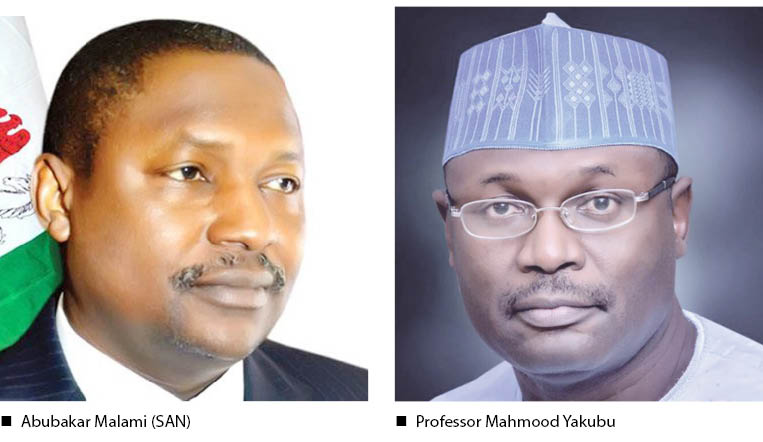2019: Should INEC exercise prosecutorial powers?
Lawyers are divided whether or not the Independent National Electoral Commission (INEC) should handle the prosecution of electoral offenders arrested while trying to disrupt election process. While Senior Advocate of Nigeria, Mr. Femi Falana throws his weight behind INEC, other lawyers take a different opinion. Chief Raymond Adekunle Olaiya in a chat with Daily Trust […]

Lawyers are divided whether or not the Independent National Electoral Commission (INEC) should handle the prosecution of electoral offenders arrested while trying to disrupt election process.
While Senior Advocate of Nigeria, Mr. Femi Falana throws his weight behind INEC, other lawyers take a different opinion.
Chief Raymond Adekunle Olaiya in a chat with Daily Trust over the weekend said if INEC had been doing well, it would not have been difficult to give the commission powers to prosecute electoral offenders who stand on its way to carry out its function.
Barrister Sikiruudeen Ogunekun, however, said prosecutorial roles would be an additional burden on INEC.
“Looking at the law that created INEC, it is strictly to conduct election, but when we now add prosecutorial powers to it, I don’t think it is a good idea for INEC to try electoral offenders. We have several agencies that can try any offence in Nigeria already. Even the major role given to INEC to conduct elections, year in year out has been fraught with lapses here and there. The 2019 presidential election was postponed due to logistic reasons. To now add to their burden, it will not be a good idea. It could even cripple the main idea of creating INEC,” he said.
On his part, Falana said in the past, the prosecution was usually taken over by state attorneys-general who in turn file nolle prosequi for termination of the cases due to pressure from the ruling party.
Falana further said that if the offenders were not properly prosecuted, “…the detained armed thugs who engaged in the cold murder of unarmed voters, ballot snatching, burning of ballot papers etc during the election will soon be freed and allowed to continue to sabotage the inchoate democratic process in the country.”
He said Section 150 of the Electoral Act, 2010 vested INEC with powers to prosecute any person who violates the provisions of the Act.
“Like other prosecutorial agencies of the Federal Government, the INEC should request the Inspector-General of Police to deploy some trained police investigators to the Legal Department for the purpose of coordinating the investigation of the cases,” he said.
Another senior lawyer who spoke on condition of anonymity said “INEC may have the will to prosecute electoral offenders but added that it lacks the capacity to do so”.
“INEC alone cannot cover the 774 Local Government Areas, hence it would require assistance from the Civil Society Organizations, EFCC and the Code of Conduct Bureau (CCB),” he said.
Already, there is a bill pending before the National Assembly (NASS) for the creation of a commission that will deal with electoral breaches even as the integrity of the outcomes of our elections have been continuously questioned.
The bill contains sanctions ranging from N500,000 to N50 million fine, or a 10-year jail term, depending on the offence. According to the proposed law, unauthorised printing, distribution, destruction of ballot boxes or results attracts 10 years of imprisonment or an option of N50 million fine. Anybody who engages in double registration, forgery and mutilation of a registration document risks a 12-month jail term or a fine of N1 million or both.
Other offences covered include impersonation or use of another person’s voters card; signing of a nomination paper to be a candidate when such a person is ineligible; disorderly behaviour at political rallies and being in possession of offensive weapons.
Electoral officials are not spared either. For instance, delivering false results, deliberately delaying voting and announcing false results are serious offences with a 12-month jail term; while “Any Returning Officer or Collation Officer, who delivers or causes to be delivered, a false certificate of return” on conviction will be jailed for a maximum of three years.
Candidates too, whose campaign donations and expenses run afoul of the approved limit, will incur the wrath of the law. This affects the presidential, governorship and legislative candidates at both state and federal levels.
